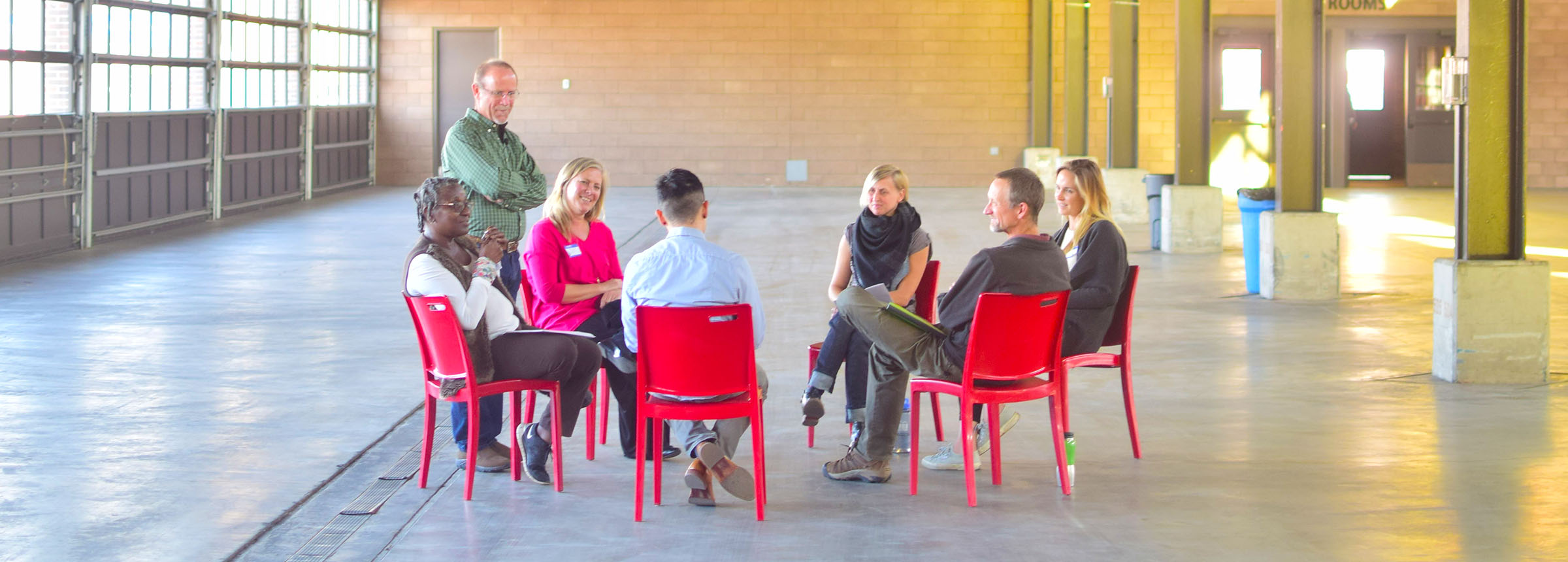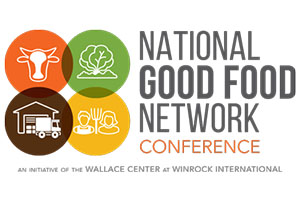
Networks and Collaboration

Tools for Partnering with Indigenous Food Systems
Wednesday March 11th, 2:15-3:45
Building allyship begins with recognizing indigenous history and contributions to the landscape and food system. Indigenous peoples have developed sophisticated food systems and place-based economies over generations of knowledge sharing and direct relationship with the land. The current Indigenous food sovereignty movement taking place across Turtle Island (North America) offers a strong example of how these systems and structures are being rebuilt using culturally-centered strategies of network building and engagement. This session will cover the basics of what successful engagement with indigenous lands and food systems looks like. We will learn specific hands-on activities, such as a culturally relevant food-based curriculum, and how they can be used as a tool for understanding new ways of conceptualizing ‘food hub’ development. Take your first step in your journey to indigenous allyship.
Speakers: Kaylena Bray, Phd Student, Johns Hopkins University – Bloomberg School of Public Health, Lea Zeise, Eastern Region Tech. Asst. Specialist, Intertribal Agriculture Council
Addressing Rural Food Insecurity through Community Engagement
Wednesday March 11th, 4-5:30pm
Our workshop is focused on facilitating community-driven work to strengthen local food systems and address food insecurity in rural communities. We share processes, best practices, and lessons learned working alongside Appalachian communities in North Carolina and Kentucky. Our organizations work with communities to take ownership of work that addresses food system inequities by growing their own food, creating mutually beneficial consumer/ retailer relationships with farmers’ markets through healthy food prescriptions and SNAP-enabled markets, and engage their neighbors in identifying solutions to food systems issues impacting their own communities. We will share our methodologies for employing community and equity driven framework. We will provide attendees with skills and ideas that can be replicated in their own communities.
Speakers: Emily Roberts, Healthy Eating Active Living Project Manager, McDowell Local Food Advisory Council, Paula Swepson Avery, Executive Director West Marion Community Forum Inc., Heather Edwards, Project Developer, Foothills Food Hub, Ginger Webb, Community Engagement Project Coordinator, McDowell County, Kathy Arriola, Executive Director, Centro Unido Latino Americano
Competition, Cooperation, and Collaboration in Rural Communities of Color: What’s Working In and Around the Mississippi Delta
Thursday March 12th, 10:30-12
A panel of Mississippi Delta farmers will tee off a participatory discussion of what works — and what does not — in collaboration around healthy food systems and economies in rural communities. Over the last decade, leaders and organizations have emerged to join long-standing community organizations and farming support organizations. The region now boasts coordinated production and aggregated contracts, grower and farm business training, farmers markets, demonstration farms with community programming, a new commercial kitchen, and plans for improved warehousing and distribution. Sometimes these efforts work in relative isolation, but most are working collaboratively toward common goals of increasing farming skill, building farm businesses and raising incomes for low-income growers, increasing access and consumption of healthy food, and increasing economic power among African American farm families. Panelists and participants will explore barriers to and strategies for building and developing collaboration among food system stakeholders in rural communities.
Speakers: Danita Rodriguez, President, DRA Resources, Rockiell Woods, Gulf State Regional Director, National Center for Appropriate Technology, John Martin, Director of Social Media, Foot Print Farms, Dr. Bill Evans, Director of Horticulture, Up In Farms
Growing Stronger Together: Building and Sustaining Equity Centered Farm to School Networks
Thursday March 12th, 2-3:30
For over a decade, the National Farm to School Network (NFSN) has leveraged a unique network model to advance the farm to school movement across the United States. In recent years, NFSN has restructured and leveraged the model to center equity as a central tenet of farm to school and of NFSN. Farm to school networks at the national and state level are key to aligning goals, bringing together cross-sector stakeholders, and creating a unified voice in order to increase local food procurement, gardens, and food and agriculture education in a values driven way. Join this session to hear from NFSN, the Mississippi Farm to School Network, and the Georgia Farm to School Coalition about best practices and relevant tools, including the NFSN Programs and Policy Equity Assessment Tool, that encourage diverse and inclusive national and state farm to school networks that support just and equitable food systems.
Speakers: Krystal Oriadha, Senior Director of Programs and Policy, National Farm to School Network, Dorothy Grady-Scarbrough RN MA, Co-Director, Mississippi Farm to School Network, Kimberly Della Donna, Farm to School Director, Georgia Organics
